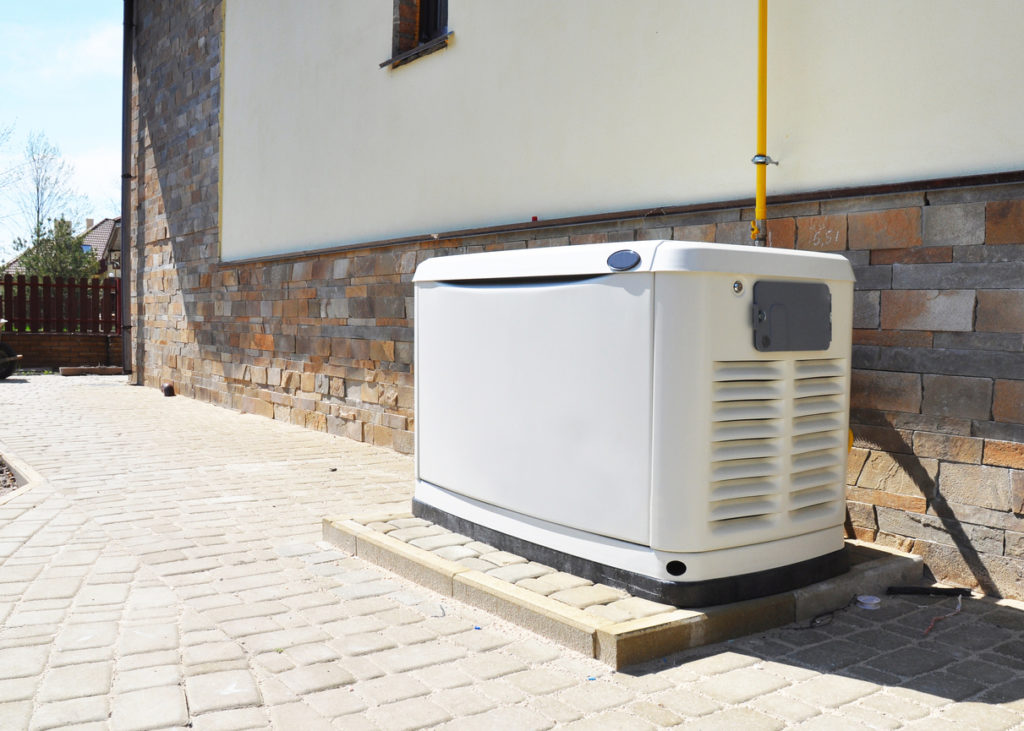What Size Generator Is Needed To Power My House?
Generators can be a great support in keeping your home running smoothly all year long. The stormy, uncertain weather during the summer months can mean surprise power outages. With the right generator, your home and family can keep doing everything they love, no matter the weather!
Home generators use gasoline or propane as fuel to power a combustion engine. Then, the engine uses an alternator to create electricity. This electricity is connected to your home through a subpanel. Many new, modern generators can sense when your home loses power, so you don’t even need to turn the generator on! It’s ready and waiting to be used when you need it.
What Size Generator Does Your Home Need?
The size and power of your home generator make a difference. Without the right amount of wattage, you won’t be able to run your appliances effectively and efficiently during a power outage.
The most crucial piece to understand is wattage when determining the generator size required for your home. Wattage is the energy you need to power your home. Each appliance you use takes a particular amount, so your generator needs to be able to deliver the wattage you need.
Here’s how to determine what size home generator you need to keep your family safe and comfortable:
- Determine what appliances you want to run.
- Calculate the power requirements for each appliance. Make sure you measure both the starting watts (what it takes to power up the device) and the running watts (what it takes to keep it on once it starts).
- Choose the generator that fits your needs. The recommendation is to choose a generator that is a little bit bigger than the one that fits your needs exactly. That way, you’ll have extra room to upgrade or change your appliances without running out of power from your at-home generator. Also, generators running at total capacity tend to make more noise than those that are not.
What To Expect From Your Generator
Home generators also vary based on the size of your home. Larger homes tend to have more wattage use from more appliances and other electricity draws.
A 5,000- to 7,500-watt generator will run most appliances for most houses. If you want to be sure all your appliances run, you may want to get a larger generator.
What Can Your Home Generator Power?
With enough wattage, generators can power all the appliances in your home. Consider taking wattage measurements to power:
- Lights
- Air conditioning units
- Sump pumps
- Refrigerators
- Dishwashers
- Washing machines/ dryers
- Furnaces
- TV, computers, and entertainment systems: You need to ensure your generator has a Total Harmonic Distortion rate of 3% or below, or your electricity-sensitive items may get damaged.
Keep in mind that the more items you want to power with a generator, the more wattage you’ll need to have. It’s a good practice to round up estimating the amount of power you’ll need from your generator. That way, you’ll still be under the generator’s maximum capacity.
Portable vs. Standby Generator
The differences between portable and standby generators are apparent. While portable generators offer affordability and convenience, standby generators can be a more reliable option in the long run.
Portable Generators
Portable generators run on propane or gasoline. They can take up to 20 gallons of fuel a day to run, which can get pricey quickly. Also, finding fuel may be more difficult after a severe weather event.
You also need to connect the portable generator to your circuit breaker when you need to use it. That means dragging the generator out of storage each time your power goes out. Plus, you must protect your portable generator from the elements, which may be challenging to do in extreme weather.
Portable generators are also considered louder and less efficient than other generators. That means they’ll be unable to power as many appliances as alternatives could.
Standby Generators
Standby generators are generators that are professionally installed next to your home. Most models come with weatherproofing to protect the units against the elements. The weatherproofing also makes them quieter than portable generators.
Standby generators automatically turn on when your power goes out, giving you consistent power in your home. Plus, standby generators are more powerful, so they can keep most, or even all, of your appliances working.
Standby generators run on natural gas or propane. When combined with a whole-house tank, standby generators can last much longer than a portable generator.
Why You Should Invest in a Generator for Your Home
Investing in a home generator is a good idea because of its reliability to your home and life. With a generator, you’ll be able to continue your family’s functioning and productivity even when the power goes out.
Standby generators can also increase your home’s value. Potential buyers like having the peace of mind that comes with a standby generator. The cost of the generator is much less than repairing the damage from a sump pump that can’t work or frozen pipes that burst because of a power outage.
Generators From Blind & Sons
If you’re ready to invest in a home generator, Blind & Sons is prepared to help you. We’ll meet with you to evaluate your home and needs and fully explain the options that best meet your needs and budget.
Protect your Ohio home and family from the unpredictable weather.
Contact us to schedule your generator installation today at (330) 753-7711.
Sidebar
Northeast Ohio
Neighbors We are committed to bringing our
community fast, affordable home
comfort solutions.




